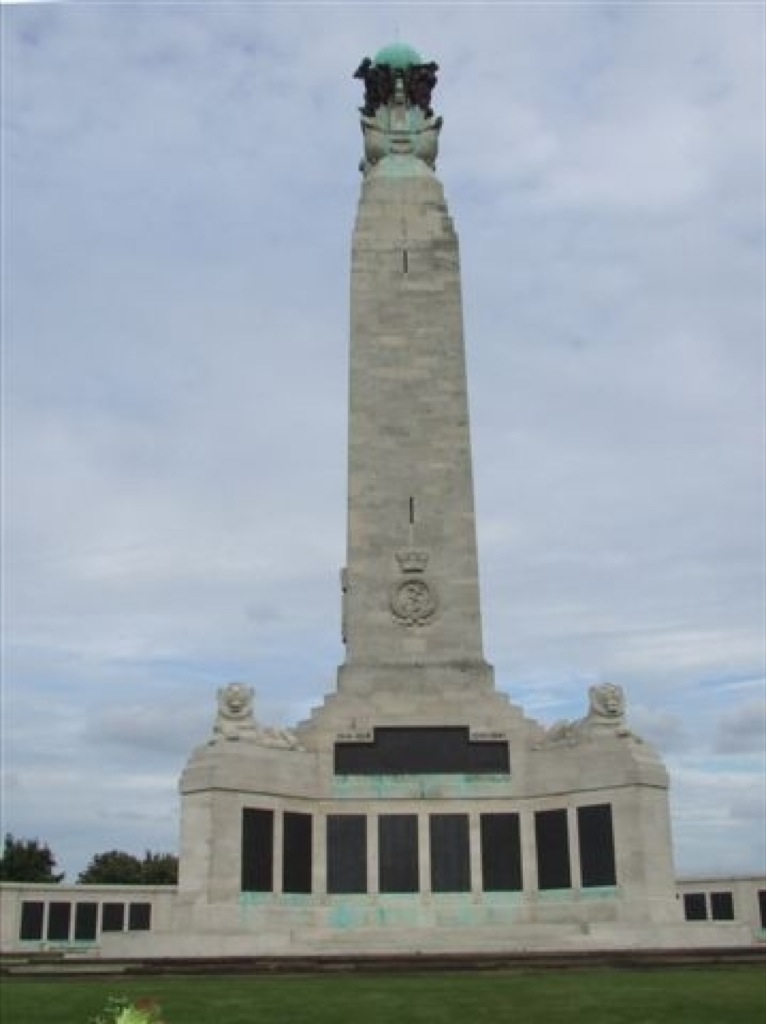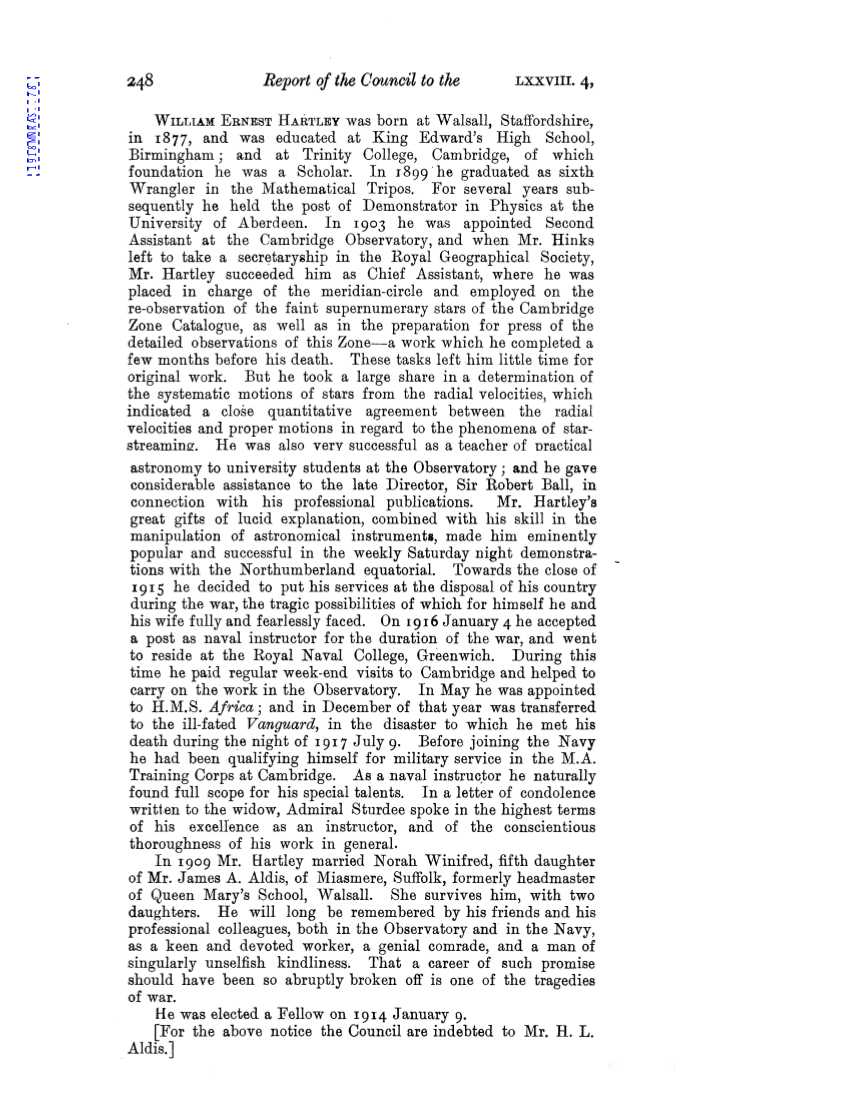William Ernest Hartley, born on 9th February 1877, was admitted to King Edward’s School in January 1892 as a Foundation Scholar.
At School, William was a distinguished mathematician, obtaining an open mathematical scholarship of £50 per annum at Trinity College, Cambridge. In 1899, he graduated as Sixth Wrangler in the Mathematical Tripos. For several years subsequently, he held the post of Demonstrator in Physics at the University of Aberdeen. In 1903, William was appointed Second Assistant at the Cambridge Observatory, and later Chief Assistant of the Royal Geographical Society, in charge of the Meridian-Circle. During the following few years, he contributed greatly to several important academic studies on stellar kinematics. He was also a very successful teacher of practical astronomy to university students at the Observatory.
Towards the end of 1915, William decided to put his considerable intellect at the disposal of his country, and accepted a post as Naval Instructor at the Royal Naval College, Greenwich. In May 1916, he was appointed to HMS Africa, transferring in December to that ill-fated vessel, HMS Vanguard. On 9th July 1917, as a result of a catastrophic accidental explosion, William and 803 other men were killed aboard the Vanguard, which sank almost instantly in the worst accidental loss of life in British naval history. William is commemorated on the Chatham War Memorial, and was survived by his wife Nora, and their two daughters. The Royal Astronomical Society Journal remembered him as: “A keen and devoted worker, a genial comrade, and a man of singularly unselfish kindliness.”



